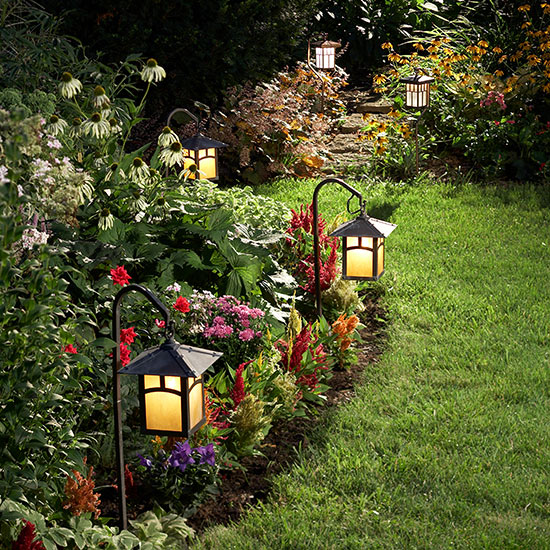






Your life patterns should play a major role in determining what kinds of plants you grow. Pay attention to your lifestyle so you don't commit yourself to a garden you can't maintain, and one that will eventually become an eyesore. Plants offer such diversity that you can choose what caters to your family's schedule and commitment to maintenance.
If you typically take a long vacation to escape the heat of summer, avoid plantings that display peak color in summer. Instead, stock your garden with spring-bloomers, such as bleeding heart, columbine, foamy bells, heart-leaf brunnera, Jacob's ladder, and 'May Night' salvia. Include fall-flowering plants to accent the post-vacation season.
Consider your daily and weekly routines as well. If your weekends are committed to away-from-home activites, fill your garden with low-maintenance plants that can withstand neglect. A great place to spot performers that don't demand much upkeep is at public parks and commercial planting areas where minimal care is the rule. Durable plants include hosta, Lenten rose, ornamental grasses, sedum, and yucca.
If daily commutes bring you home about dusk, stock the garden scene with white blooms and silver-tinted foliage to illuminate evening garden walks. The same style of garden also graces evening entertaining with glowing views. Silvery artemisia, lamb's-ears, and lavender reflect light at dusk, as does white-variegated foliage. White blooms of astilbe, garden phlox, hollyhock, iris, and peony infuse evening gardens with luminous life. Include lighting to enhance your enjoyment.
continue reading belowBefore you break ground on a garden, inventory your time. How much can you realistically devote to gardening? The answer to this question should guide many aspects of your garden, from size and plant selection to soil preparation and irrigation. Careful soil preparation and an investment in automatic watering can forge a foundation for a beautiful garden that doesn't require a lot of care.
Commit to spending 15 minutes a day in your garden, surveying the scene. As you take time to smell the roses, you'll also discover plants that need staking, invading pests, sprouting weeds, and dead flowers that need to be removed; devote a few moments that same day or the next to deal with them. Many problems are nonissues when they're caught and conquered in the early stages.
To make the most of daily walks, tuck garden shears, twine, and a weeding/digging tool in a bucket you can carry or in a weatherproof tool station (an old mailbox works well) in the midst of the garden. When tools are handy, it's a breeze to tidy up as needed.
Copyright © www.100flowers.win Botanic Garden All Rights Reserved